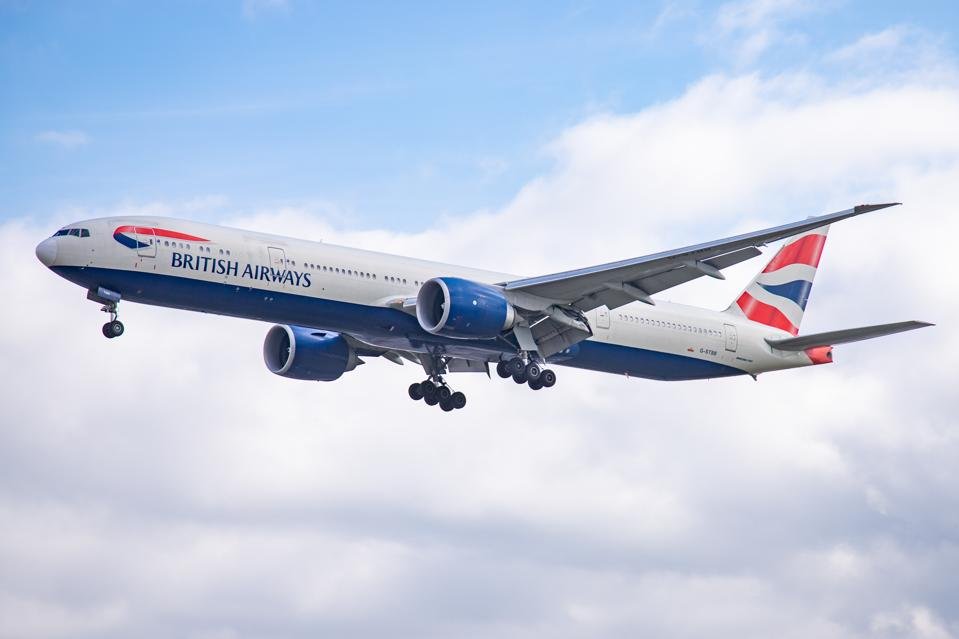Chennai–London Flight Carrying Two Hundred Six Passengers Makes Mid-Air U-Turn as British Airways Navigates Iranian Airspace Shutdown, Prompting Widespread Delays to Kuwait, Dubai, Doha, Sharjah, and Abu Dhabi Flights
In an unexpected turn of events that gripped both passengers and aviation enthusiasts, a British Airways flight traveling from Chennai to London made a dramatic mid-air U-turn as tensions escalated over Iranian airspace. The incident, which saw two hundred six passengers onboard, unfolded smoothly with the airline prioritizing safety and calm communication, while ripple effects spread across several Gulf routes.
A Routine Journey Interrupted

What began as a routine overnight journey from Chennai turned into a carefully managed crisis situation thousands of feet above the ground. The British Airways flight, packed with families, solo travelers, and business professionals headed for London, had already covered several hours of flight time when the airline’s command center issued instructions for the aircraft to reverse course.
The reason: an unexpected shutdown of Iranian airspace amid heightening regional tensions. Such airspace closures are not entirely uncommon in volatile situations, but for the passengers mid-flight, it was a moment that demanded extraordinary calm from the cabin crew and pilots.
Safety First: The Calm Within the Clouds
The aircraft’s mid-air turn was executed with professionalism and precision, ensuring passenger safety and comfort throughout. Onboard, while some passengers noticed the subtle change in direction via in-flight maps and updates on their screens, the majority remained unaware until a formal announcement was made by the captain.
Described by passengers as composed and reassuring, the captain’s announcement acknowledged the unexpected diversion while emphasizing that everyone was safe and the airline was working closely with air traffic control and aviation authorities to determine the safest route home.
“Of course it was worrying to see our flight path suddenly loop back, but the crew was incredible. They kept everyone informed and calm, and reassured us that this was purely a precautionary measure,” said a passenger traveling to visit family in the UK.

The Wider Impact: Delays Ripple Through the Gulf
While the flight’s safe return and handling took immediate priority, the incident inevitably sent shockwaves through regional air travel. Several routes traversing the Gulf region — including flights bound for Kuwait, Dubai, Doha, Sharjah, and Abu Dhabi — experienced delays and route adjustments as airlines swiftly reviewed their operational protocols.
With multiple carriers navigating the uncertainty surrounding airspace availability and diplomatic advisories, travelers at airports across the region faced longer waiting times and sudden gate changes. Airport lounges and terminals quickly filled with anxious passengers scanning departure boards and mobile notifications for updates.
An airline operations expert noted, “Such mid-air diversions and airspace closures have a domino effect in tightly scheduled air corridors like those in the Gulf. Airlines have to respond in real-time, reroute aircraft safely, and manage passenger expectations, all while maintaining strict safety standards.”
Passengers Share Their Mid-Air Moments
As news of the incident spread, social media platforms were abuzz with passengers sharing their experiences. Some uploaded images of the flight tracker maps showing the distinctive U-turn pattern over the Arabian Sea, while others praised the cabin crew’s professionalism and the airline’s decision-making under pressure.
One traveler, a young professional returning to London after a vacation in India, shared, “It was surreal. You don’t expect your plane to suddenly turn around mid-ocean. But the way British Airways handled it was truly commendable. They didn’t panic, and neither did we.”
Another passenger, traveling with two children, expressed relief, “It’s never easy when you’re in the air and hear about airspace closures, but the crew reassured us constantly. My kids stayed calm because the crew made it feel normal.”
Behind the Scenes: The Airline’s Swift Decision-Making
While passengers were being kept calm in the cabin, the real-time decisions unfolding behind the scenes were a testament to the aviation industry’s robust safety protocols. Airline control centers around the world monitor geopolitical developments and airspace restrictions constantly. When Iranian authorities closed the airspace, British Airways was quick to assess all possible options.
Flight path adjustments in such situations involve coordination with multiple air traffic control centers, evaluating fuel availability for alternate routes, and assessing the safety of neighboring air corridors. British Airways opted for a U-turn rather than attempting a lengthy detour over unfamiliar or similarly restricted zones.
Aviation analysts later praised the move, calling it a prudent and passenger-centric decision that prioritized safety over schedules.
Wider Regional Tensions: A Growing Concern for Travelers
The incident also shone a spotlight on the growing concerns among travelers about the impact of regional tensions on commercial aviation. While most travelers rarely consider geopolitical risks when booking a flight, incidents like this bring those realities to the forefront.
In recent months, sporadic conflicts and airspace advisories in the Middle East have posed challenges for airlines operating transcontinental flights, particularly between Asia and Europe. Airlines and aviation authorities routinely issue notices about restricted zones and adjust flight paths to minimize risk.
Industry insiders remarked that while such situations cause temporary delays and diversions, the global aviation community is highly adept at handling them. The focus remains on ensuring that every decision made, even at the cost of inconvenience, keeps passengers and crew safe.

Ripple Effects at Gulf Airports
Airports in Kuwait, Dubai, Doha, Sharjah, and Abu Dhabi — major transit hubs for international travel — experienced delays and operational adjustments as airlines rerouted or rescheduled flights in response to the incident. Departure boards flashed updates as passengers waited for new boarding calls, while airline staff worked to rebook connecting flights and manage crowds.
Though some passengers expressed frustration at the disruptions, many also showed understanding, recognizing that safety concerns had to take precedence.
A passenger at Dubai International Airport remarked, “No one likes to wait, but seeing what happened with the Chennai-London flight reminds you that the airlines are doing this for our safety. I’d rather have a delay than take any risk.”
Positive Takeaways Amidst Disruption
While the incident caused temporary upheaval for passengers and airlines alike, it also highlighted several positive aspects of modern aviation:
- The swift and safe decision-making by the British Airways crew and operations team.
- The calm, professional demeanor of cabin crews who managed passenger concerns effectively.
- The seamless coordination between international air traffic control centers and airlines to adjust routes safely.
- The understanding and resilience shown by passengers despite the inconvenience.
These moments of collective responsibility and professionalism underscore the often-unseen efforts of countless individuals working behind the scenes to keep global air travel safe and efficient.
A Reminder of the Importance of Vigilance
For many passengers on the Chennai–London flight and others affected across the region, this incident served as a timely reminder of the complexities of international aviation. While most flights proceed without incident, the interconnected nature of airspace management and geopolitical developments means that airlines must remain constantly vigilant.
Industry experts noted that as travel demand continues to rebound post-pandemic, airlines and regulatory bodies will face growing challenges in navigating dynamic global conditions. However, incidents like this also demonstrate the strength of existing safety systems and the capacity of the aviation community to respond effectively under pressure.
Looking Ahead
As airspace over Iran remains subject to restrictions and advisories, airlines are expected to continue adjusting their flight paths in the coming days. Passengers traveling to and from the Middle East and connecting through Gulf hubs are advised to check for updates and allow extra time for potential delays.
For the two hundred six passengers aboard the Chennai–London flight, however, the incident ended on a positive note. The aircraft landed safely back in Chennai, and British Airways offered alternate travel arrangements and accommodations.
Most importantly, every passenger disembarked unharmed — a testament to the unwavering commitment to safety that defines the aviation industry, even amid the most unpredictable circumstances.
Do follow UAE Stories on Instagram
Turkish Airlines Swiftly Suspends Flights to Gulf Amid Rising Tensions













